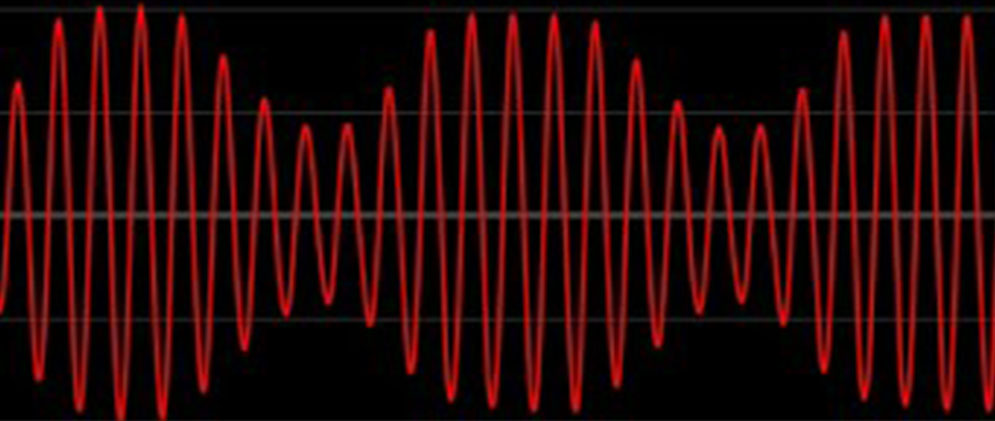What’s the Delay? Audio Latency and Its Effect on Networked Musical Performance
From The Theme
LEARNING AND TRAINING
WHAT IF
What if we could better understand the effects of audio latency and delay on networked musical performance and collaboration?
WHAT WE SET OUT TO DO
We set out to better understand the effects of latency and delay on musical performance in a network setting. These disruptions occur as a result of transmission distance and/or issues with inter-networking (routing). Specifically, we wanted to characterize effects of network delay on rhythmic accuracy and identify the aspects most conducive to ensemble playing.
WHAT WE FOUND
Study participants were recorded while performing together under graduated artificial delay conditions. Pairs of musicians were placed apart in isolated rooms and asked to clap a rhythm together. Each person monitored the other’s sound via headphones and microphone pickup was as close as possible. Time delay from source to listener was manipulated across trials. Trials were recorded and clap onset times were measured with an event detection algorithm.
Study results found that longer delays produced increasingly severe tempo deceleration, shorter delays (< 11.5 ms) produced a modest acceleration, and moderate amounts of delay were actually beneficial to tempo stability. These findings offer insights into the relationship between audio latency and “naturalness”. They also suggest that sensitive networked ensemble performance can be supported over long paths (e.g., San Francisco to Denver at about 20 ms, oneway). The results have implications for networked musical performance as well as other environments for networked collaborations.
LEARN MORE
Network Delay Studies: Exploration of the effects of short time delays on music ensemble performance. Papers describe empirical studies of effects and their simulation, as well as case histories in concerts and rehearsals online.
PEOPLE BEHIND THE PROJECT
 Chris Chafe is Director of Stanford University’s Center for Computer Research in Music and Acoustics (CCRMA) and Duca Family Professor at Stanford University. Dr. Chafe is a composer, improvisor, and cellist, developing much of his music alongside computer-based research. At IRCAM (Paris) and The Banff Centre (Alberta), he pursued methods for digital synthesis, music performance and real-time internet collaboration. CCRMA’s SoundWIRE project involves live concertizing with musicians the world over. An active performer either on the net or physically present, his music reaches audiences in dozens of countries and sometimes at novel venues.
Chris Chafe is Director of Stanford University’s Center for Computer Research in Music and Acoustics (CCRMA) and Duca Family Professor at Stanford University. Dr. Chafe is a composer, improvisor, and cellist, developing much of his music alongside computer-based research. At IRCAM (Paris) and The Banff Centre (Alberta), he pursued methods for digital synthesis, music performance and real-time internet collaboration. CCRMA’s SoundWIRE project involves live concertizing with musicians the world over. An active performer either on the net or physically present, his music reaches audiences in dozens of countries and sometimes at novel venues.
